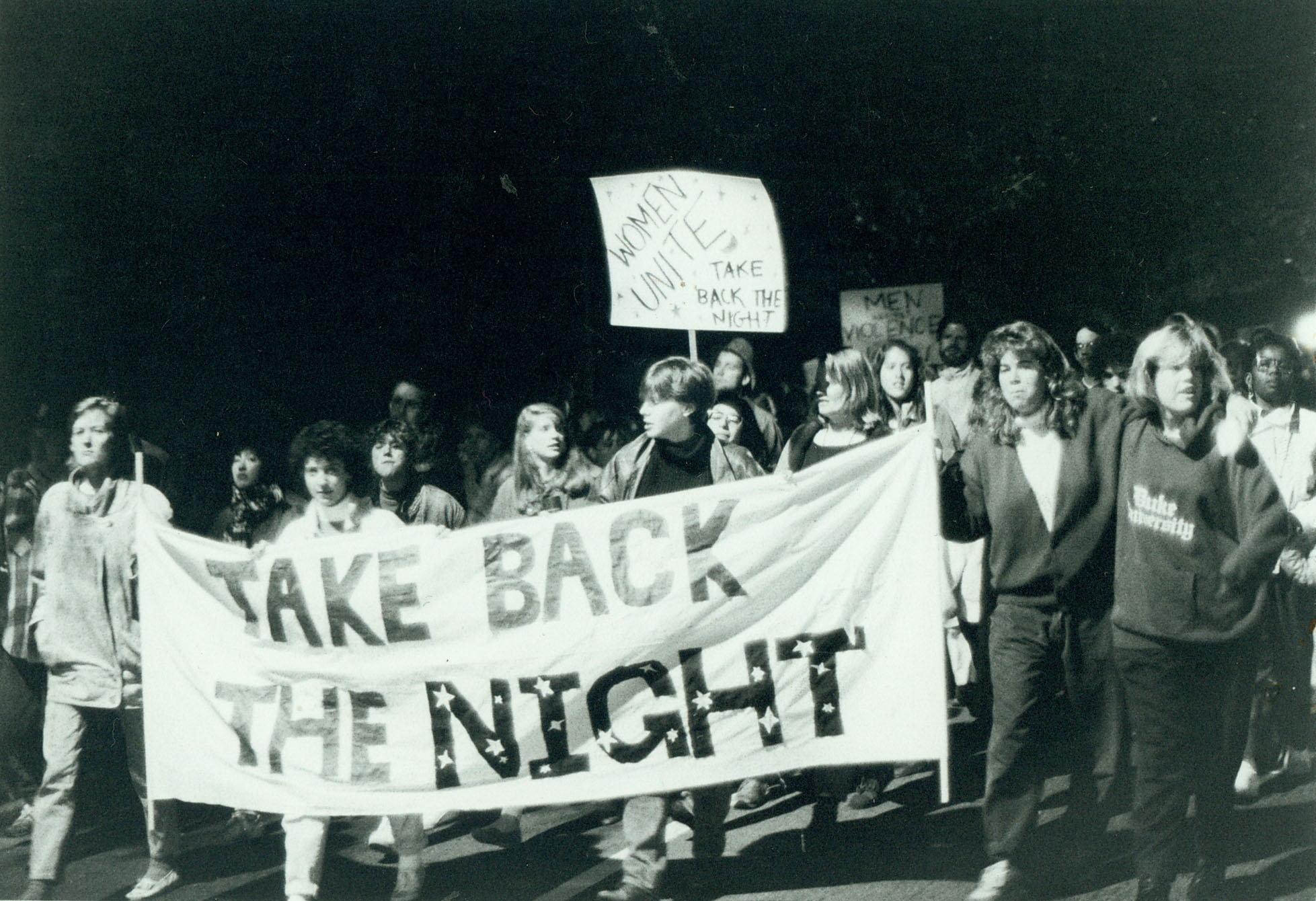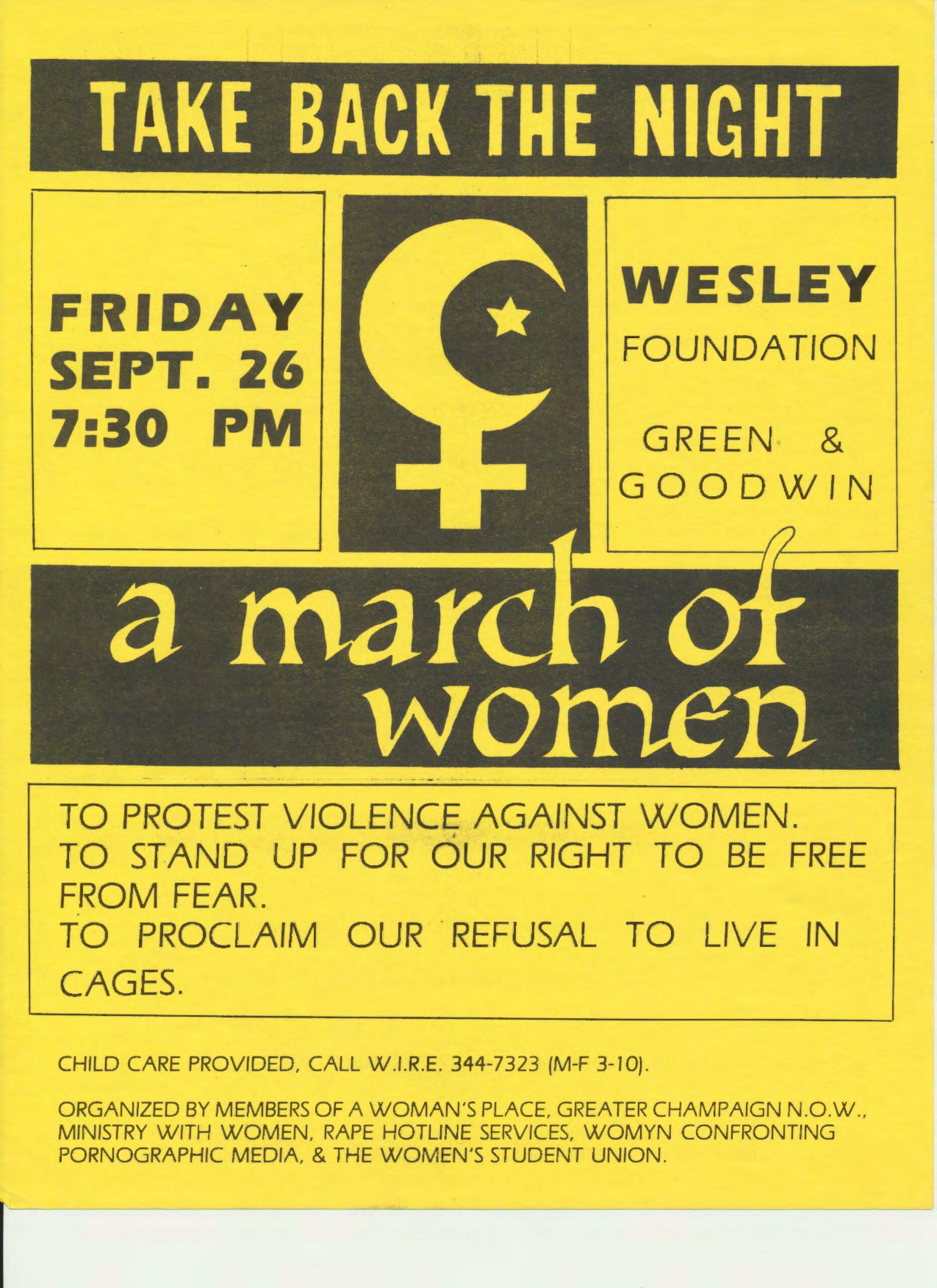Background
In the 1970s and 1980s, feminists became more vocal about issues of responsibility and blame in incidents of sexual violence. Traditional views suggested women could prevent sexual violence by acting or dressing certain ways. Feminists argued that a victim of an attack should not be held responsible or blamed because of her sexual history or manner of dress.
By the late 1970s, local feminist groups regularly organized events to protest violence against women under the name Take Back the Night. The public protests aimed to reclaim spaces in which women felt unsafe. The local nature of the organizations meant that the marches were typically organized in response to an assault within the community. By the 1980s, Take Back the Night events were common on college campuses across the United States. The events often included candlelight vigils and speeches by survivors, followed by a march.
About the Document
The photograph shows people marching in a Take Back the Night protest at Duke University in the 1980s. The majority of the marchers are white women, but a Black woman and a white man can be seen as well.
The flyer promotes a Take Back the Night event organized by the National Organization for Women at the University of Illinois, Urbana-Champaign. The event was held outside the Wesley Foundation building on the corner of Green and Goodwin Streets.
Vocabulary
- grassroots: A movement or organization led by regular people.
- National Organization for Women (NOW): An activist organization for women founded in 1966.
- vigil: An event where people stay quiet to mourn or protest.
Discussion Questions
- What do the images tell you about the women who attended Take Back the Night events?
- How did feminist groups continue to advocate for women’s rights during the 1980s?
- Why might Take Back the Night marches organized by local groups be effective? What would have been the benefits of a large organization like NOW planning an event?
- Some Take Back the Night events excluded men for participation. Why do you think they made this decision? Why might men want to participate?
Suggested Activities
- Have students analyze the flyer closely. Ask them to identify the different symbols and textual components and consider what information they provide about the event.
- Consider the continuation of the feminist movement in the 1980s and 1990s by combining this resource with feminist zines and music, images of female professional athletes, and the life stories of Audre Lorde and Byllye Avery.
- For a larger lesson on women and activism during this time period, teach this resource alongside photographs of anti-LGBTQ+ activism, materials by Latina environmental activists, a speech about the effects of the nuclear disaster at Three Mile Island, a famous photograph of a disability rights activist, and the life stories of Byllye Avery, Patricia Locke, and Yuri Kochiyama.
Themes
ACTIVISM AND SOCIAL CHANGE








